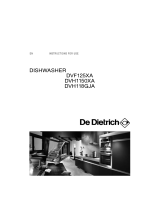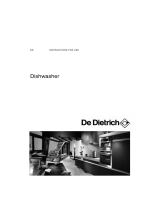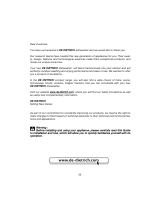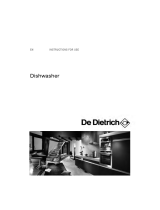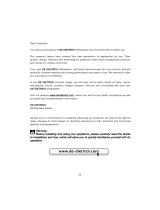
5
!
EN
Warnings and Safety Information
Energy and water saving
Remove the food remains (bones, pips, etc.) from dirty
dishes. Start your dishwasher after fully loading the machine.
Do not use the pre-wash program unless required. Make
your program selection according to the dirt level given in
the program selection chart on the daily usage card.
If you have a hot water inlet hose in your machine, you can
use a ready hot water source (central hot water supply or
hot water supply with solar energy) up to 60°C. You will
save energy and help preserve natrual resources.(please
read the water inlet hose connection).
Unsuitable dishware
Do not wash items soiled with cigarette ash, candle, dyes,
etc. since these may harm your machine
Do not wash forks, knives and spoons with wooden or bone
handles, items stuck together with adhesives, plastic items
not resistant to high temperature and copper and tin items
in your dishwasher.
As with hand washing, some on-glaze decorated
china, aluminum or silver have a tendency to discolor
or fade. Also, certain types of glassware and crystals
may loose their shine and become opaque in time.
Pay special attention to whether or not the dinnerware
you wash in the dishwasher is dishwasher-proof.
Do not overload your dishwasher or do not load items
other than those mentioned in this manual.
Environmental Protection
Recycling
This appliance's packaging material is recyclable. Help
recycle it and protect the environment by dropping it off
in the municipal receptacles provided for this purpose.
Your appliance also contains a great amount
of recyclable material. It is marked with this label
to indicate the used appliances that should not
be mixed with other waste. This way, the
appliance recycling organised by your
manufacturer will be done under the best possible
conditions, in compliance with European Directive
2002/96/EC on Waste Electrical and Electronic Equipment.
Contact your town hall or your retailer for the used
appliance collection points closest to your home.
We thank you doing your part to protect the environment.



















